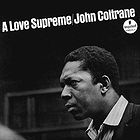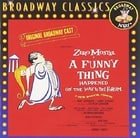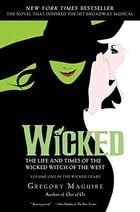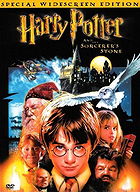1. Blue Train
2. Moment's Notice
3. Locomotion
4. I'm Old Fashioned
5. Lazy Bird
Blue Train review
 Posted : 19 years, 4 months ago on 19 January 2006 04:44
(A review of Blue Train)
Posted : 19 years, 4 months ago on 19 January 2006 04:44
(A review of Blue Train) 0 comments, Reply to this entry
0 comments, Reply to this entry
Blue Miles review
 Posted : 19 years, 4 months ago on 19 January 2006 04:41
(A review of Blue Miles)
Posted : 19 years, 4 months ago on 19 January 2006 04:41
(A review of Blue Miles)1. 'Round Midnight
2. Blues For Pablo
3. Blue In Green
4. The Pan Piper
5. Drad Dog
6. Basin Street Blues
7. Circle
8. Sweet Pea
2. Blues For Pablo
3. Blue In Green
4. The Pan Piper
5. Drad Dog
6. Basin Street Blues
7. Circle
8. Sweet Pea
 0 comments, Reply to this entry
0 comments, Reply to this entry
Blast: An Explosive Musical Celebration review
 Posted : 19 years, 4 months ago on 19 January 2006 04:40
(A review of Blast: An Explosive Musical Celebration)
Posted : 19 years, 4 months ago on 19 January 2006 04:40
(A review of Blast: An Explosive Musical Celebration)1. Bolero
2. Split Complimentaries
3. Everybody Loves The Blues
4. Loss
5. Simple Gifts
6. Appalachian Spring
7. Medea
8. Gee Officer Krupke
9. Lemontech
10. Land Of Make Believe
11. Marimba Spiritual/Earth Beat
12. Malaguena
2. Split Complimentaries
3. Everybody Loves The Blues
4. Loss
5. Simple Gifts
6. Appalachian Spring
7. Medea
8. Gee Officer Krupke
9. Lemontech
10. Land Of Make Believe
11. Marimba Spiritual/Earth Beat
12. Malaguena
 0 comments, Reply to this entry
0 comments, Reply to this entry
A Love Supreme review
 Posted : 19 years, 4 months ago on 19 January 2006 04:36
(A review of A Love Supreme)
Posted : 19 years, 4 months ago on 19 January 2006 04:36
(A review of A Love Supreme)1. Acknowledgement
2. Resolution
3. Pursuance
4. Psalm
2. Resolution
3. Pursuance
4. Psalm
 0 comments, Reply to this entry
0 comments, Reply to this entry
A Funny Thing Happened On The Way To The Forum (1962 Original Broadway Cast) review
 Posted : 19 years, 4 months ago on 19 January 2006 04:34
(A review of A Funny Thing Happened On The Way To The Forum (1962 Original Broadway Cast))
Posted : 19 years, 4 months ago on 19 January 2006 04:34
(A review of A Funny Thing Happened On The Way To The Forum (1962 Original Broadway Cast))1. Overture
2. Comedy Tonight
3. Love, I Hear
4. Free
5. Lovely
6. Pretty Little Picture
7. Everybody Ought To Have A Maid
8. I'm Calm
9. Impossible
10. Bring Me My Bride
11. That Dirty Old Man
12. That'll Show Him
13. Lovely (Reprise)
14. Funeral Sequence
15. Finale
2. Comedy Tonight
3. Love, I Hear
4. Free
5. Lovely
6. Pretty Little Picture
7. Everybody Ought To Have A Maid
8. I'm Calm
9. Impossible
10. Bring Me My Bride
11. That Dirty Old Man
12. That'll Show Him
13. Lovely (Reprise)
14. Funeral Sequence
15. Finale
 0 comments, Reply to this entry
0 comments, Reply to this entry
Wicked: The Life and Times of the Wicked Witch of the West (Wicked Years) review
 Posted : 19 years, 4 months ago on 19 January 2006 04:31
(A review of Wicked: The Life and Times of the Wicked Witch of the West (Wicked Years))
Posted : 19 years, 4 months ago on 19 January 2006 04:31
(A review of Wicked: The Life and Times of the Wicked Witch of the West (Wicked Years))With a husky voice and a gentle, dramatic manner that will call to mind the image of a patient grandfather reading to an excited gaggle of children, McDonough leisurely narrates this fantastical tale of good and evil, of choice and responsibility. In Maguire's Oz, Elphaba, better known as the Wicked Witch of the West, is not wicked; nor is she a formally schooled witch. Instead, she's an insecure, unfortunately green Munchkinlander who's willing to take radical steps to unseat the tyrannical Wizard of Oz. Using an appropriately brusque voice for the always blunt Elphaba, McDonough relates her tumultuous childhood (spent with an alcoholic mother and a minister father) and eye-opening school years (when she befriends her roommate, Glinda). McDonough's pacing remains frustratingly slow even after the plot picks up, and Elphaba's protracted ruminations on the nature of evil will have some listeners longing for an abridgement. Still, McDonough's excellent portrayals of Elphaba's outspoken, gravel-voiced nanny, Glinda's snobbish friends and the wide-eyed, soft-spoken Dorothy make this excursion to Oz worthwhile.
 0 comments, Reply to this entry
0 comments, Reply to this entry
The Barbecue Bible review
 Posted : 19 years, 4 months ago on 19 January 2006 04:27
(A review of The Barbecue Bible)
Posted : 19 years, 4 months ago on 19 January 2006 04:27
(A review of The Barbecue Bible)This is the most amazing book in the entire world. The author went all around the world looking for different recipies for this book. There's not one recipie that's not good.
 0 comments, Reply to this entry
0 comments, Reply to this entry
Eichmann in Jerusalem: A Report on the Banality of Evil (Penguin Twentieth Century Classics) review
 Posted : 19 years, 4 months ago on 19 January 2006 04:25
(A review of Eichmann in Jerusalem: A Report on the Banality of Evil (Penguin Twentieth Century Classics))
Posted : 19 years, 4 months ago on 19 January 2006 04:25
(A review of Eichmann in Jerusalem: A Report on the Banality of Evil (Penguin Twentieth Century Classics))Eichmann in Jerusalem: A Report on the Banality of Evil by Hannah Arendt is one of the most disturbing books that I have read in a long while. Along with Gita Sereny's interviews with Stangle and Speer, they demonstrate the true horror of the Third Reich. This horror is not the inherent evil of Hitler or Himmler or the sadistic camp guards. The holocaust presented these already morally bankrupt men with the opportunity to commit the evil which their consciences allowed. Of greater horror are the individuals, such as Eichmann, who were not evil per se, but who were willing to put conscience aside in order to advance within an evil system.
As Arendt moves through the holocaust in the different countries in Western Europe and the Balkans, it becomes evident that the difference in degrees of the destruction of Jewry was not defined by the presence of potentially evil wrongdoers, but by the existence of individuals who would not put their conscience aside in order to further short-term goals. The contrast between the destruction of German Jews and the survival of the Jews of Bulgaria and Denmark can be directly traced to a commitment by the Bulgarians and Danes to save their fellow countrymen. The German Jews did not survive as the Danish and Bulgarian Jews did because Germany lacked such men of conscience.
It is easier to think of the chief architects and perpetrators of the attempted destruction of a whole people as madmen, the madder the better. Their acts can be rightfully condemned, but also understood, as evil things done by evil people. Furthermore, if the holocaust can be blamed on the acts of evil madmen, then it is also easier to believe that it could not have been prevented. Arendt destroys each of these rationalizations and raises questions that frankly kept me up at night. If, as she demonstrates, the success of the holocaust was determined by those who put their consciences aside, then it also seems agonizingly true that the deaths of six million were not predetermined. Had more people acted on their consciences, perhaps those deaths need not have been integral to the Nazi conquest of Europe.
The fact that she does not treat Eichmann as a mad sadist, and instead explains why the prosecutions portrayal of him was incorrect, does not mean that Arendt is an apologist for Eichmann - far from it. Unlike Hitler, Eichmann was under no illusion that the Jews were responsible for all of the world's problems. His prior relations with Jews had been friendly. However, he was willing able to put this aside and play a vital role in the Final Solution. His excuse was that he was ordered to do so. But the reality was that he was more worried about his failure to get the promotions that he believed he deserved. This made Eichmann, like most of the perpetrators of the holocaust, the paradigm of the "banality of evil." However, such a rational led Arendt not to condemn the Jerusalem Court's death verdict but to condone it.
Arendt does an amazing job of delving into the mind of Eichmann as well as the reasons why the Final Solution was successful in some countries and not others. This is not a book for one who desires light reading. However, if one is seeking to understand the Final Solution, then this book is a must.
As Arendt moves through the holocaust in the different countries in Western Europe and the Balkans, it becomes evident that the difference in degrees of the destruction of Jewry was not defined by the presence of potentially evil wrongdoers, but by the existence of individuals who would not put their conscience aside in order to further short-term goals. The contrast between the destruction of German Jews and the survival of the Jews of Bulgaria and Denmark can be directly traced to a commitment by the Bulgarians and Danes to save their fellow countrymen. The German Jews did not survive as the Danish and Bulgarian Jews did because Germany lacked such men of conscience.
It is easier to think of the chief architects and perpetrators of the attempted destruction of a whole people as madmen, the madder the better. Their acts can be rightfully condemned, but also understood, as evil things done by evil people. Furthermore, if the holocaust can be blamed on the acts of evil madmen, then it is also easier to believe that it could not have been prevented. Arendt destroys each of these rationalizations and raises questions that frankly kept me up at night. If, as she demonstrates, the success of the holocaust was determined by those who put their consciences aside, then it also seems agonizingly true that the deaths of six million were not predetermined. Had more people acted on their consciences, perhaps those deaths need not have been integral to the Nazi conquest of Europe.
The fact that she does not treat Eichmann as a mad sadist, and instead explains why the prosecutions portrayal of him was incorrect, does not mean that Arendt is an apologist for Eichmann - far from it. Unlike Hitler, Eichmann was under no illusion that the Jews were responsible for all of the world's problems. His prior relations with Jews had been friendly. However, he was willing able to put this aside and play a vital role in the Final Solution. His excuse was that he was ordered to do so. But the reality was that he was more worried about his failure to get the promotions that he believed he deserved. This made Eichmann, like most of the perpetrators of the holocaust, the paradigm of the "banality of evil." However, such a rational led Arendt not to condemn the Jerusalem Court's death verdict but to condone it.
Arendt does an amazing job of delving into the mind of Eichmann as well as the reasons why the Final Solution was successful in some countries and not others. This is not a book for one who desires light reading. However, if one is seeking to understand the Final Solution, then this book is a must.
 0 comments, Reply to this entry
0 comments, Reply to this entry
Harry Potter and the Sorcerer's Stone review
 Posted : 19 years, 4 months ago on 19 January 2006 03:06
(A review of Harry Potter and the Sorcerer's Stone)
Posted : 19 years, 4 months ago on 19 January 2006 03:06
(A review of Harry Potter and the Sorcerer's Stone)For being the first movie like it, it was amazing! However, in comparison to it's couterparts, it's not actually very good.
 0 comments, Reply to this entry
0 comments, Reply to this entry
Harry Potter and the Prisoner of Azkaban review
 Posted : 19 years, 4 months ago on 19 January 2006 03:04
(A review of Harry Potter and the Prisoner of Azkaban)
Posted : 19 years, 4 months ago on 19 January 2006 03:04
(A review of Harry Potter and the Prisoner of Azkaban)This movie was beautifuly done but I have to say that I very much hate what the director cut out of the script. The entire ending of the movie ruins the whole movie because it is missing some key plots that affect all the next movies.
 0 comments, Reply to this entry
0 comments, Reply to this entry
 Login
Login
 Home
Home 4 Lists
4 Lists 195 Reviews
195 Reviews Collections
Collections